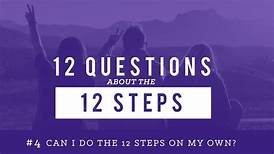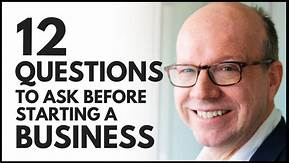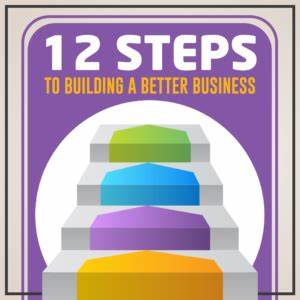12 Questions to ask + 12 Steps to turn your brilliant Idea into a Business
 Part A: 12 QUESTIONS: Should I ? 12 Questions, Risk vs Reward, Limits, Plan +
Part A: 12 QUESTIONS: Should I ? 12 Questions, Risk vs Reward, Limits, Plan +
Part B:12 STEPS: What? Now? Name, Slogan, Brands, Value Proposition, Target Market, Help? USP, Online, Expenses, now Market !!!
You’re probably here because you have a great business idea and you have a burning desire to start it. You got that idea when you least expected it, now what do you do about it? So rarely do these ideas ever progress beyond a fleeting thought. And setting up a business can be intimidating, so most people don’t even get as far as writing the idea down on paper. At the start of the year, people have an appetite to do something new, change their lives, and shake things up. But most never see it through because the scale of the tasks seem too great. First you need to ask the Questions to “qualify” the business. Start below.
 A. 12 Questions to ask before Starting a Business
A. 12 Questions to ask before Starting a Business
from BizTown 4/21 enhanced by PeterCXO Wiz4.biz
“Should I Start a Business ???
You should be asking yourself this very question. However, instead of trying to answer this broad question directly without adequate info, I suggest instead you ask yourself the following list of 12 more specific questions below. By answering these questions, you will more easily and decisively be able to answer the broader question of “Should I Start a Business.” Furthermore, if you do decide to start a business, answering these questions will give you more confidence & knowledge in your choice of moving ahead. It should also be noted that part of the answer to the question: “Should I start a Business” depends on your idea. Small business ideas are not created equal and some of them have a higher likelihood to fail. Consider that in your decision. Share your idea with family, friends & your network – so they tell you what they think of your idea.
2. Ask yourself these 12 Questions
Probe deeper by asking yourself additional questions relating to whether or not you should start a business. Here is a 12-questions to start with:
- How much Cash will I have at risk?
- How much Time will it consume?
- How much Energy will it take?
- Do I currently have other obligations that will prevent me from giving the business 100% or more?
- Would there be a much better time for me to start a business other than now?
- What are my alternatives – if I don’t start a business now?
- What are the chances of success?
- Am I looking at starting a business from a position of relative strength – feeling good about myself and feeling I am relatively well off – or am I looking at starting a business from a position of relative weakness – recently laid off from a job and being behind on my bills? *
- Can I test-run the business part-time before quitting my job?
- Should I choose between a higher or lower-risk businesses? Rewards?
- Suppose my business provides less income than I expected. How long should I stick with it?
- If the business doesn’t work out, how easily will I be able to pick myself up and move along to the next endeavor?
* Should you quit your Day Job ???
3. Weigh the Risk vs. Reward
For example, maybe you are fortunate enough to currently have an excellent, highly paid corporate job with terrific fringe benefits and good advancement potential. The key question for you might not be, “Am I going to start a business?” Instead, it might be, “Am I going to start a full-time business that will require me to quit my primary job?”
Similarly, let’s say you’ve worked for many years, saved a lot of money and are close to retirement. Now you think you want to start a business. So the key question for you may not be, “Do I want to start a business?” Instead, it may be, “What is the maximum amount of money I am willing to risk on a new business? Your initial investment will have an impact on which businesses you can start. But it doesn’t mean that you can’t start a business on a small budget. There are many Biz you can start with just a little $$$. Do the research to find similar Biz to your idea. Starting any business involves many risks. And for most businesses, significant risks, and the failure rate for new businesses, is high.
4. Tight Limits can Reduce the Fear of Starting a Business
Facing risks makes people fearful. Often, you can reduce the fear and feel better about starting a business if you have Limits – firm, hard limits; limits that you write down and put right in your business plan. For example, you may decide your hard limit is: 1) that you will not start any business that interferes with your day job or 2) you may decide your limit is to not invest more than $10,000 in your start-up business or 3) you may decide that you will only try a new business for one year, and if you don’t have at least 50 customers and $50,000 in sales after that period, you will shut it down. So as you can see, deciding whether you should start a business can be complex and require significant research & judgment. While having limits is a good way to make your decision less stressful, you should also choose an easy business to start, Especially if it is your first time starting a business.
5. Not having Specific Limits can get you into Trouble
You might be thinking, “Why should I limit how much money or time I put into my business; I want to think BiG right from the start.” Well, that’s the kind of thinking that can get you into trouble. If you are at all anxious about pouring all of your time & money into a business now, imagine how anxious you will be on the days when it looks like the whole Biz may crash (half the startups do in the first 5 years). That’s why, for many people, the best approach is to start small with specific limits. In fact, you might want to first start a business that you see as just a simple test business, to get your feet wet and develop your experience. It will be time well spent, I assure you.
6. Plan Ahead
Before you start your business, it is absolutely crucial to think about it and write a Business Plan. So, when you start thinking about your business, even in the very early stages, start creating your Business Plan. You don’t have to write the whole thing yet! Even just writing a Business Plan outline will help you identify the potential strengths & weaknesses of your future business.
 B. 12 Steps to turn your brilliant Idea into a new Business
B. 12 Steps to turn your brilliant Idea into a new Business
Steps: What? Now? Name, Slogan, Brands, Value Proposition, Target Market, Help? USP, Online, Expenses, now Market !!!
from City Cam 4/21 enhanced by Peter/CXO Wiz4.biz
Starting a business is exciting—but also demanding. This guide addresses some of the most common startup Steps to ensure your company has the highest probabilty for success. Starting a business requires understanding and dealing with many issues—legal, financing, sales & marketing + intellectual property protection, liability protection, human resources, & more. But interest in entrepreneurship is at an all-time high. And there have been spectacular success stories of early stage startups growing to be multi-billion-dollar companies, such as Uber, Facebook, WhatsApp, Airbnb, and many others. If you do your homework & persevere, you may succeed. Here’s a guide to help you.
Step 1. Explain: “What your Business will do !!!
If you can’t explain your Idea in just a few sentences, then there’s a good chance that you’re not yet clear in your own mind what your business will do. So what is your ‘Elevator Pitch’? This will give you clarity as you move through the next steps.
Step 2. Ask yourself – “Why now?
In just a few sentences, explain why you think this is the moment to bring your idea to life. Research the Market, find your Niche. Who are your potential Customers, Competitors. How can you be “Better, Faster or Cheaper” ???
Step 3. Name your Business
What do you want to Name your business? Try to pick a name that can be associated with the products or services of your business. Examples: Lyft, Facebook, DoorDash, PayPal, QuickBooks, Netflix, etc. It can make your company easier to remember and make it easier for you to attract customers.
Step 4. Give your Business a Strapline/Slogan
A strapline is the short line you often see under a brand’s logo. You may not want a strapline, but this is a helpful exercise in getting your idea off the ground. It will help you convey to your customer what it is you do or sell – or perhaps why you exist. Some good examples: The US Army – “Be all you can be”. LG – “Life’s Good”. KFC – “Finger-Lickin Good”. Nike’s was the best – “Just do it !!!
Step 5. Find similar Brands
List a few brands that you respect and would like to respected like them. Think about what makes them appealing and why they have been successful. This will guide your initial approach to doing business. Eventually, you will probably find your own way of doing things. After you do the research, follow your intuition – to use the one you feel best about.
Step 6. Write out your Value Proposition
VP a concise explanation or illustration of why a customer should do business with you. Your VP should cover three elements:
- The promise of what you’ll deliver to your customers
- The benefits that your customers will reap
- Why they should choose you over your competition
Try to determine what your potential Customer wants or needs, then try to appeal to that. (ie, One-stop Shop, your Benefits: Better, Faster or Cheaper)
Step 7. Find your Target Market
Who is your Target audience and where will you find them? You should be able to easily identify your Target demographic, and who you most want to be attracted to your business. You should also do some research to find out whether their needs are already being served by others adequately. You must also try to understand what they care about and what motivates them.
Step 8. Determine how you’ll help Customers
More available; eager to help; defining the problem; show how your Products or Services solve the problem/s; (if not) recommend an alternative; offer other advise; periodically ask for feedback.
Step 9. Discover your USP
Not UPS, but deliver on your USP. What’s your Unique Selling Proposition (USP)? What will set you apart from your competitors? Factors: your unique features & benefits, how they add value, appeal to wants & needs (answer, “What’s in it for me), how you are different than your competition, keep it short, simple, but concise.
Step 10. go Online asap !!!
Whatever your business idea, you will almost certainly want to have an Online presence. So, define what the purpose of your Website will be and how it will compliment your business. What are the purposes? Info about your Biz [Brand Building]; E-Commerce, Lead generation, Educational, etc?
Step 11. Plan for, then Track your Expenses
Budget the materials, equipment, resources etc that you need to launch your own business. Try not to be too conservative in your estimates. Financial prudence is key to success so start as you mean to go on. Boot-Strap – if you can and stay as lean as you can – to survive until you get to the good Cash Flow point.
Step 12. Market your Business
Here are some things to try – as they apply to your business, but first, create your Elevator Pitch – so you can tell people what you’re : 1) ask for help in your community, SBA. CofC, LinkedIN, etc, 2) look for a Partner that can help you, 3) “spread the work” via LinkedIN, PR, 4) look for opportunities to give a Speech to a group of Prospects or those that may Refer you, 5) ask for Referrals from friends, LinkedIN, SBA, etc, 6) Network with other Biz that can help you & reciprocate + 7) offer Discounts to get started or give away Samples for feedback & prospects.
B2. Next Steps
Complete these 12 steps and you should get a sense how strong your idea is and what it’s chances of succeeding are. You now should have enough info & feedback to write a good Business Plan – that you can use for the next step. Review it frequently (ie, monthly) so you’re keeping up with the dynamics of your developing situation.
Comments: Do you know any other Questions or Steps that would be useful in turning your Idea into a Biz?
fm Entrepreneur 10/21 enhanced by Peter/CXO Wiz4.biz
For more Info, click on Starting a Business.
